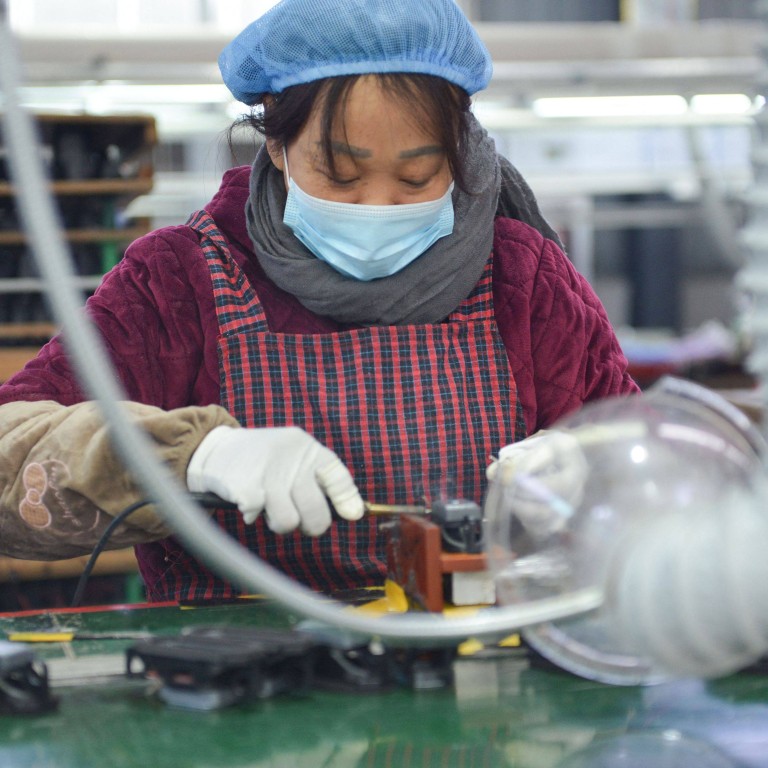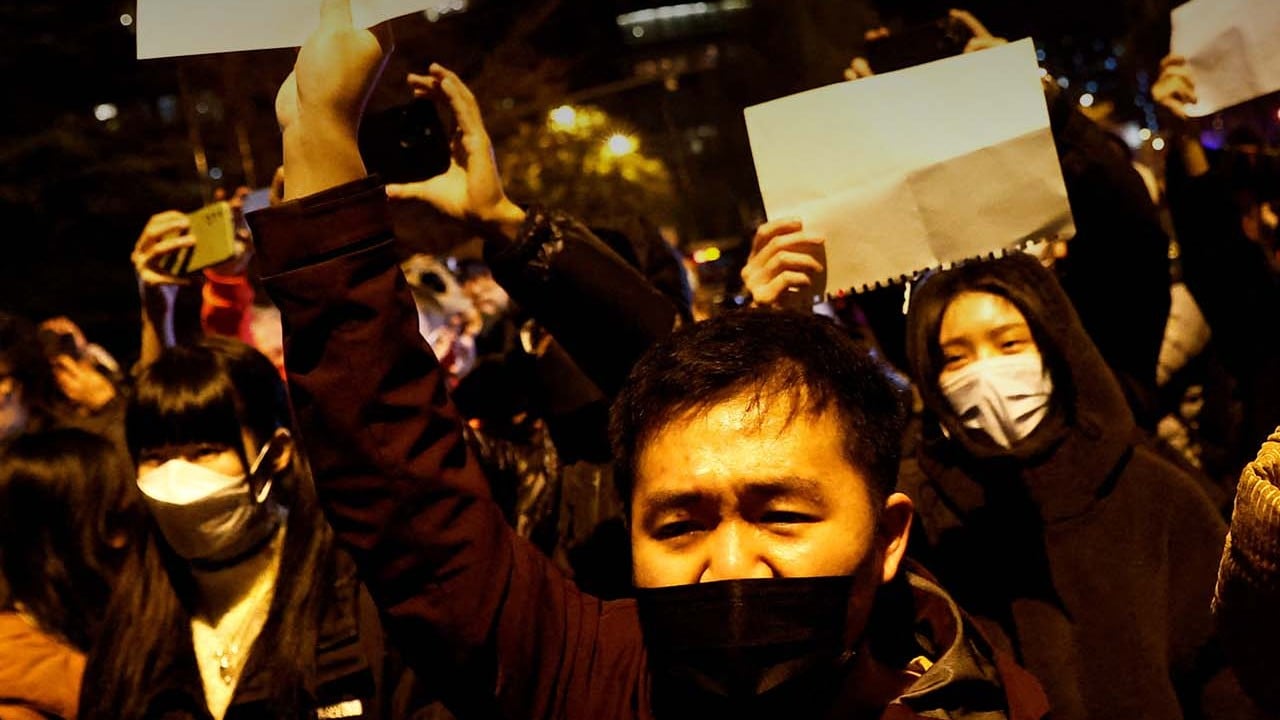
China’s factory activity shrinks in November as coronavirus curbs take ‘toll on the economy’
- Caixin/S&P Global manufacturing purchasing managers’ index (PMI) rose to 49.4 in November, up from 49.2 in October
- On Wednesday, China’s official manufacturing PMI fell to 48 in November from 49.2 in October
China’s factory activity shrank in November as widespread coronavirus curbs disrupted manufacturers’ output, a private sector survey showed on Thursday, weighing on employment and economic growth in the fourth quarter.
But the reading marks the fourth monthly contraction in a row, as the 50-point index mark separates growth from contraction on a monthly basis.
Overall, the pandemic continued to take a toll on the economy
“Overall, the pandemic continued to take a toll on the economy. Output contracted, total demand was under pressure, overseas demand remained weak, employment deteriorated, logistics was sluggish, and manufacturers faced growing operating pressure,” said Wang Zhe, senior economist at Caixin Insight Group.
“As the measure for suppliers’ delivery times is negatively correlated to the PMI, the fall in the measure partially offset the drop in the PMI, leading the decline in November manufacturing activity to be underestimated.”
Subindices of factory output, employment and new export orders all fell at a sharper pace in November from October, the private Caixin survey showed.
In particular, greater difficulties were seen in the sector’s employment, with the rate of job shedding hitting the quickest pace since February 2020, as some workers were unable to return to work due to virus curbs while production constraints weighed on staffing levels.
“The market is in urgent need of policies to promote employment and stabilise domestic demand,” added Wang, suggesting policymakers further coordinate fiscal and monetary policy to expand domestic demand and boost income of the poor population.
“Covid outbreaks have been spreading across China since October, and their impact on the economy has grown more and more obvious. How to balance Covid controls and economic growth has once again become a core issue.
“Top policymakers recently issued clear requirements on how to further optimise Covid prevention and control. How local governments implement these instructions has thus become crucial.”
‘Better late than never’: China cuts banks’ reserve ratio, freeing US$70 billion
Surveyed factory owners also linked delivery times to delays from pandemic restrictions, with the subindex for delivery times falling to the lowest point since May when Shanghai was under lockdown.
As external demand for Chinese goods weakened amid global recession risks and rising inflation, the subindex of new export orders dipped further, suggesting a sharp rebound of China’s exports is unlikely.
The Caixin manufacturing PMI centres on small firms and coastal regions, which includes a number of exporters.
However, manufacturers were generally upbeat in November that production will increase over the next 12 months, as they anticipated a recovery in output capacity and client demand when the pandemic recedes.
The surveys add to growing signs that the economy will contract this quarter. Further ahead, the economy is likely to remain weak.
Health officials said on Tuesday that China will speed up vaccinations for elderly people – a move seen as crucial in a strategy to unwind nearly three years of strict curbs that have eroded economic growth, disrupted lives and work, and sparked rare protests in recent days.
“The Caixin manufacturing PMI edged up in November, but remained weak. Taken together with the official survey, they suggest that downward pressure on industrial activity intensified last month,” said Sheana Yue and Julian Evans-Pritchard, China economists at Capital Economics.
“The economy is likely to remain weak in the coming months even if the current virus outbreak eases, due to headwinds from a deepening global downturn and ongoing property sector woes.
“We’d caution reading too much into the manufacturing PMIs. Apart from the initial outbreak in 2020, they have overstated the extent of industrial disruption from previous outbreaks. Nonetheless, the surveys add to growing signs that the economy will contract this quarter. Further ahead, the economy is likely to remain weak.”


